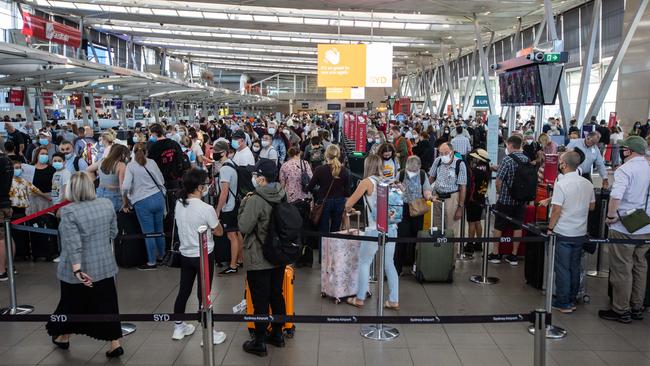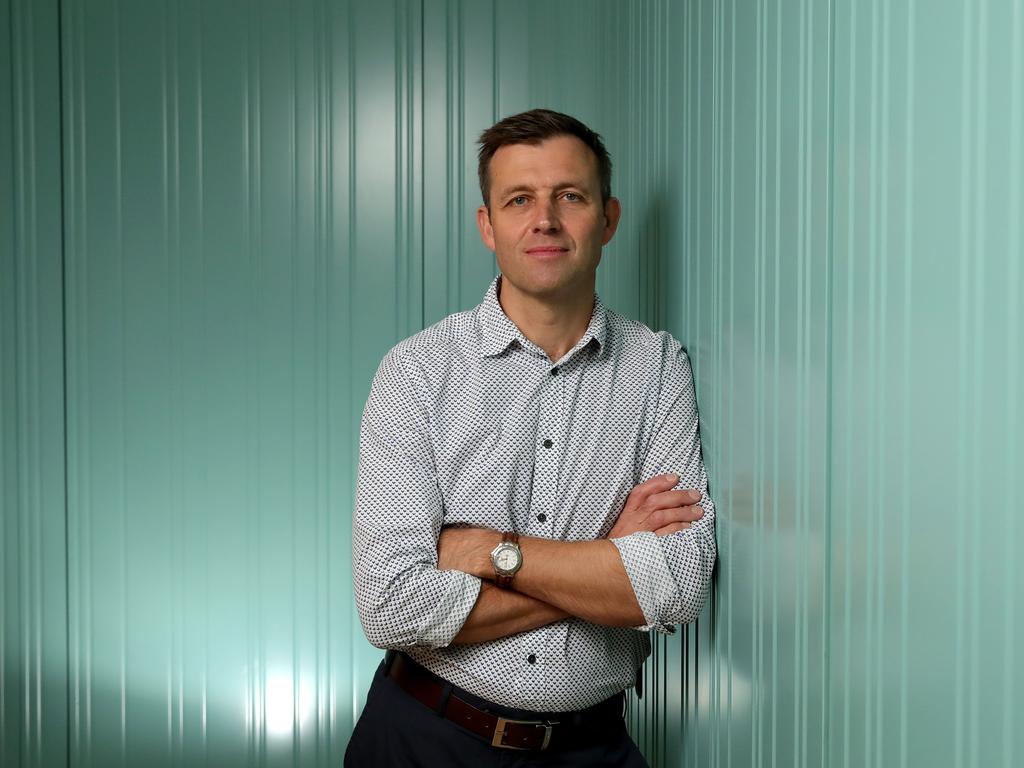Unregulated private cash is taking over our public assets
The rise of rich industry funds should be setting off alarm bells. Sydney Airport is a worrying case in point.

The threat to global and national security posed by both Russia and China was a low level, if obvious, irritant but lay effectively inert until Russia’s invasion of Ukraine and China’s plans to militarise the Solomons.
In a different field and at a different level of urgency, there is a major change brewing in relation to the ownership and control of the commanding heights of Australia’s economy. The recent takeover of Sydney Airport by a consortium of large pension funds and infrastructure investors, and the proposed bid by private equity funds and industry super funds for Ramsay Health Care, are the canaries in the coalmine of this new trend. It has, however, been simmering for a while.
Transurban and APA are the only significant publicly-listed infrastructure companies left in Australia and every major port and airport is now in private hands.
We don’t yet know how far it will go but the momentum to shift ownership of major Australian assets from publicly owned ASX-listed companies subject to high governance standards to pension and super funds controlled by essentially unaccountable, self-perpetuating private clubs is accelerating.
The tectonic forces driving money into private investments deserve more scrutiny than they have received. This is not some esoteric economic argument. Instead, it concerns the ownership, control and governance of Australia’s key assets. It concerns the accountability of those running private companies, and how the lack of visibility over these companies will ultimately mean that governments, regulators and the Reserve Bank will have far less understanding of those who control the commanding heights of our economy.
The naked power of one particular group of private investors – industry funds – and their willingness to use that power has scared potential critics away from exposing what is at stake. Indeed, there are so many vested interests feasting from this trend – including, significantly, the unions and the ALP but also employer associations and battalions of consultants and advisers – that it takes real courage and lots of hard work to describe what’s happening.
Sir Clive Cowdery, recently in Australia to check on the progress of his Resolution Group’s acquisition of AMP Life, was quoted recently as expressing fear that these private capital pools would crowd out the role of stock exchanges. Arguing that the world needed public markets, he said: “I don’t think we should let (stockmarkets) die out accidentally.”
Stockmarkets are unlikely to die out. But they may well be relegated to raising capital, or trading stock, for more speculative and small-cap companies.
Does it matter if the commanding heights of Australia’s economy are owned directly by private investors such as industry fund behemoths as opposed to being owned by ASX-listed entities? Very much so.
While it is true that the share registers of ASX-listed companies are already full of industry fund shareholders, these are currently passive, non-controlling shareholdings held alongside a plethora of diverse and widely spread fellow shareholders.
When an enterprise like Sydney Airport moves from public ownership to private direct ownership by controlling industry or other private funds, it effectively disappears into clubland. Its accounts are invisible, it is not subject to ASX corporate governance guidelines, nor to continuous disclosure requirements. It becomes immune from the scrutiny of shareholder activists, proxy advisers and the possibility of shareholder class actions.
Make no mistake, the governance standards that apply to industry funds, and thus to the private companies they control, are next to non-existent. These funds would never agree to be bound by the rules that they sanctimoniously but rigorously enforce on ASX-listed companies.
Two examples. Directors of ASX-listed companies must stand for re-election by shareholders at least every three years. Shareholders of ASX-listed companies also vote each year on their company’s remuneration reports, and have power to spill the board if 25 per cent of shareholders vote against the remuneration report two years in a row.
The boards of the trustees of industry funds by contrast are unaccountable, self-perpetuating oligarchies whose directors are immune from being booted out by members of their fund. Not only do members of the fund not get a vote on the composition of the board of the trustees, but they have no voting or other control over the remuneration policies pursued by the trustees. Indeed, they don’t usually have meetings of any kind and don’t get to vote on anything. Their only remedy if their fund is non-performing is to shift their money to a new fund, or hope that APRA will force the board of the fund to reconstitute itself or merge with another fund.
Even a big, apparently environmental, social and governance-addicted fund such as AustralianSuper has an effectively permanently entrenched trustee, Australian Super Pty Limited, and a trustee board whose directors never have to face a vote by the members of AustralianSuper’s funds.
It is no answer to say that there are elections and accountability at the level of the two shareholders of the trustee of AustralianSuper, namely the ACTU and Australian Industry Group. AustralianSuper is a public offer fund whose members comprise literally millions of Australians who are neither unionists nor members of AIG. They are simply disenfranchised. Their life savings are, by law, delivered into the hands of a self-perpetuating club they cannot control or discipline.
Who’s to blame for the flight of capital from public stockmarkets to private hands? The ASX, for starters, has much to answer for. Its ridiculously prescriptive, unduly woke corporate governance standards are a significant reason why companies that can are fleeing it for the dynamic and liberating influence of private ownership.
One wouldn’t want the ASX’s corporate governance guidelines to be inflicted holus bolus on anyone, but surely there is some middle ground. If superannuation funds are to provide a conduit for major enterprises to escape scrutiny and avoid public accountability, shouldn’t those funds be open to more scrutiny, accountability and even election by their members?
Regulators are partly to blame too. ASIC has been obsessed with securing high-profile scalps on the stock exchange, and beating the “culture” drum with language that is so vague, general and aspirational that the standard directors and managers are held to now seems to be perfection, rather than reasonable care and skill.
The other culprit is government. When was the last time you heard any politician address this growing trend of capital leaving the bourse and ending up in private hands? The ALP is of course hopelessly conflicted as their union masters benefit financially from the power of the industry funds. However, even the Coalition seems scared of the power of the industry funds.
Politicians used to spruik the importance of a “shareholder democracy”. Now, with that under threat, they are silent, probably because they don’t understand the consequences of a diminishing shareholder citizenry or because they don’t care about an issue that transcends an election cycle.
Instead, our political leaders have been very busy blaming every social ill on public companies, especially the big ones. Politicians – and regulators, from ASIC to APRA and the ASX – have ignored the need for regulatory balance and taken the easy route, adding layer upon layer of dubious quality regulation on listed companies. Skyrocketing insurance premiums for directors’ liability point to the fact that it is riskier to sit on a board of an ASX-listed company than sky dive with a dodgy parachute.
We have reached the entirely predictable point where it has never been more unattractive, or difficult, to run a public company. Unless we recalibrate the balance in favour of public company ownership, we risk losing visibility and control over our economy.








Sometimes major historical, social or political trends lie unnoticed in plain sight for long periods. Then some triggering event occurs that makes them urgent and unavoidable.